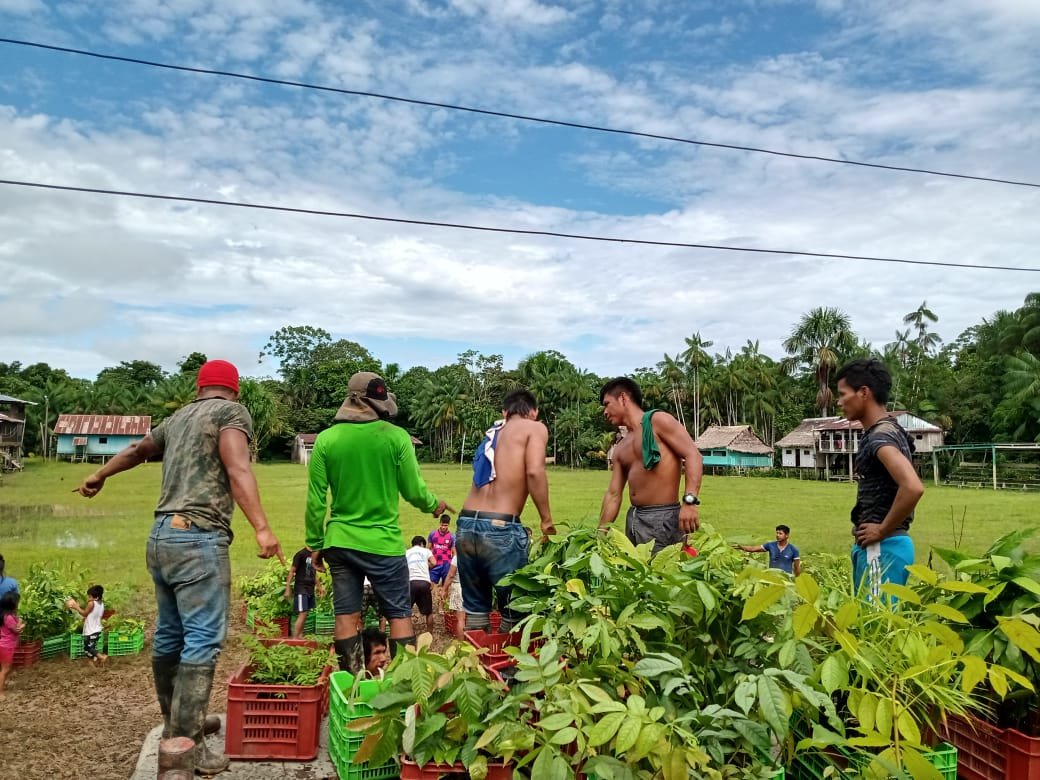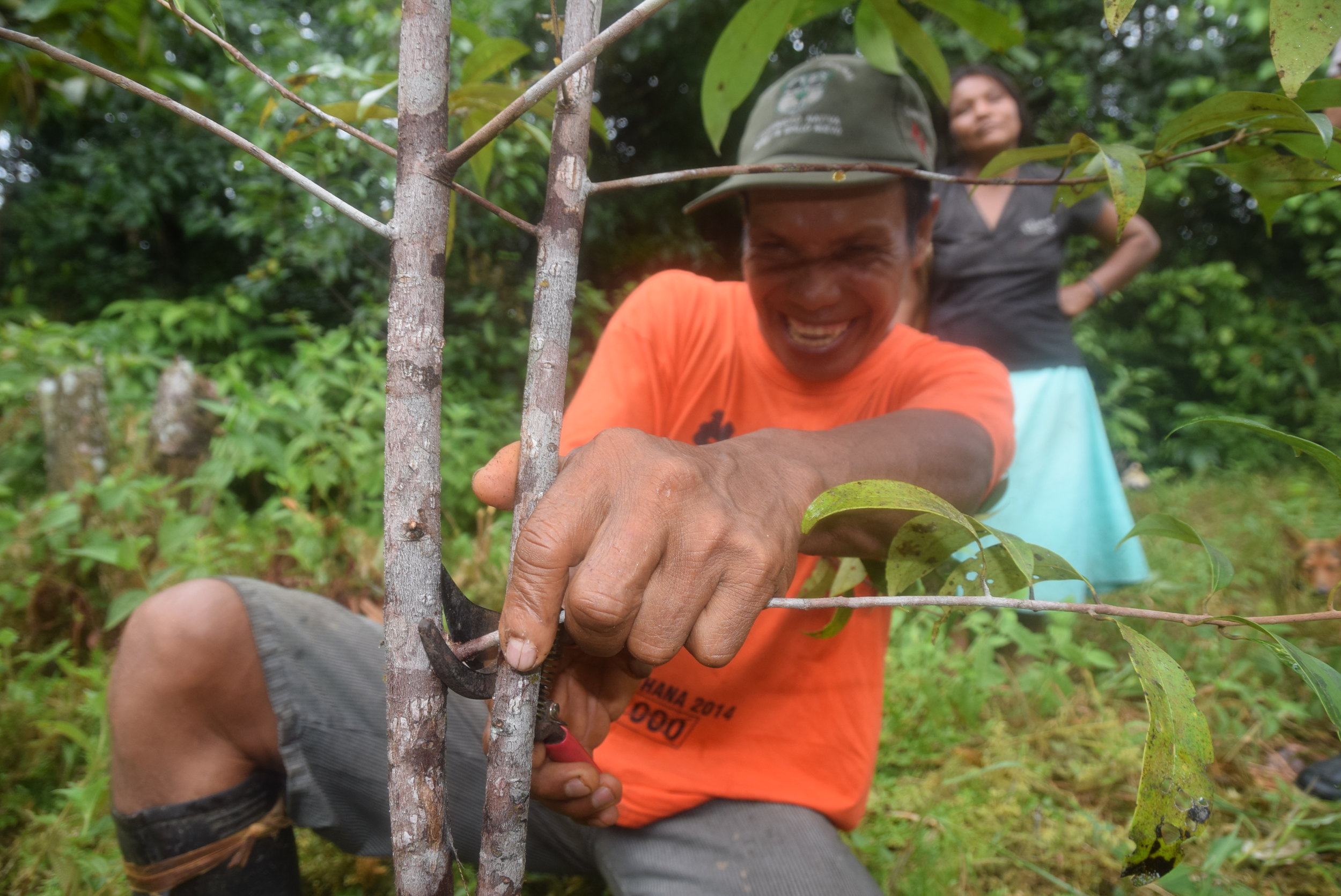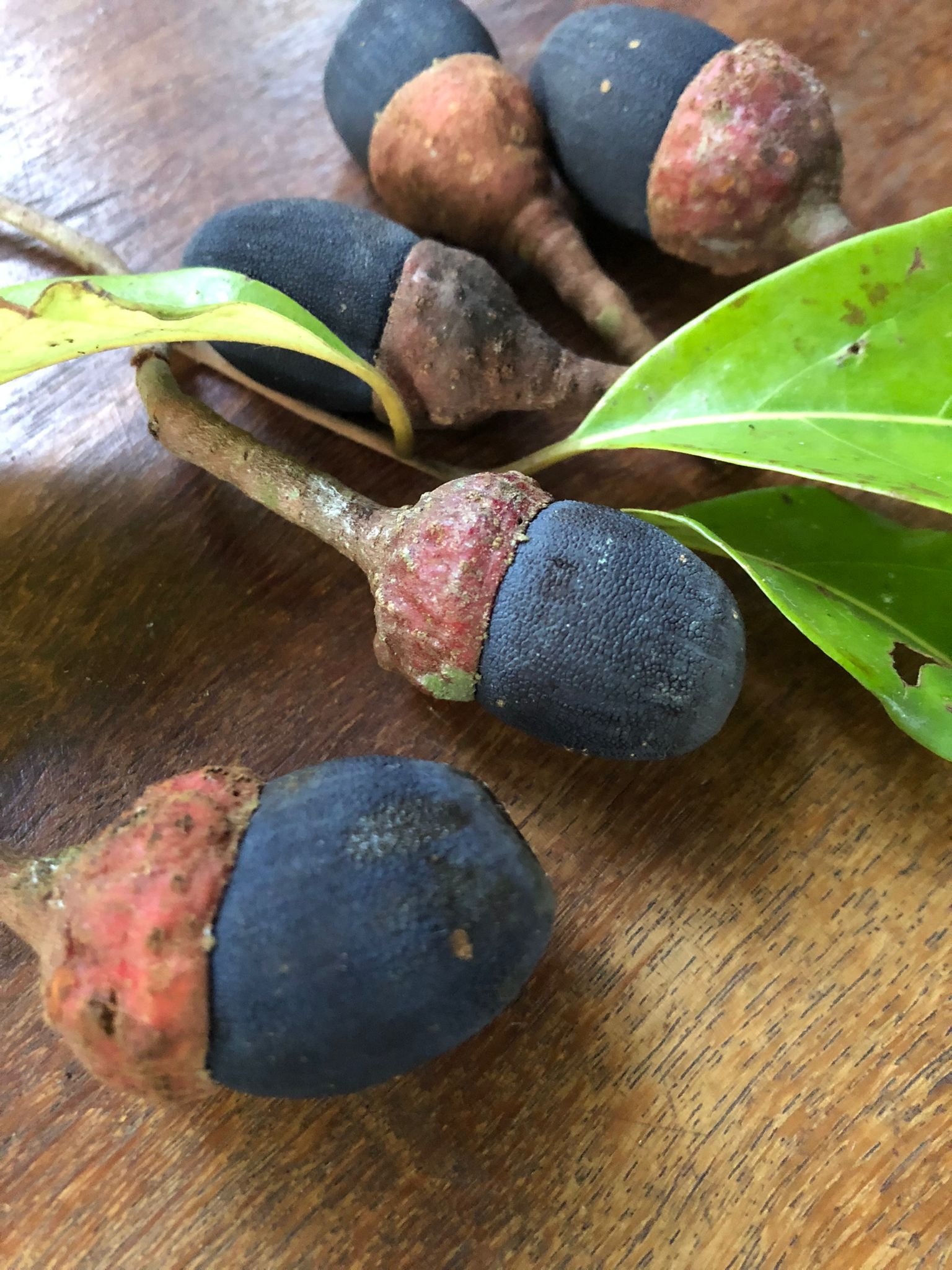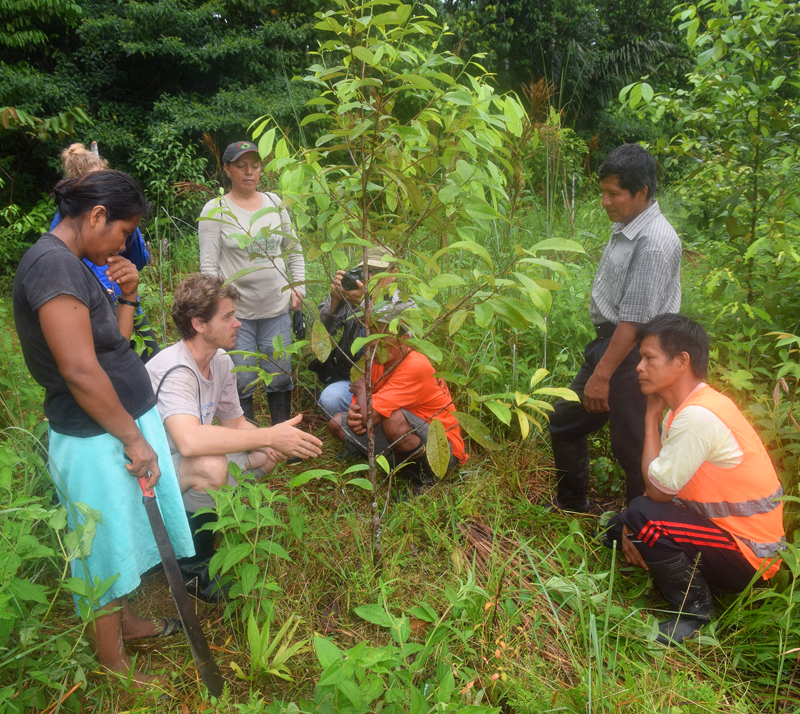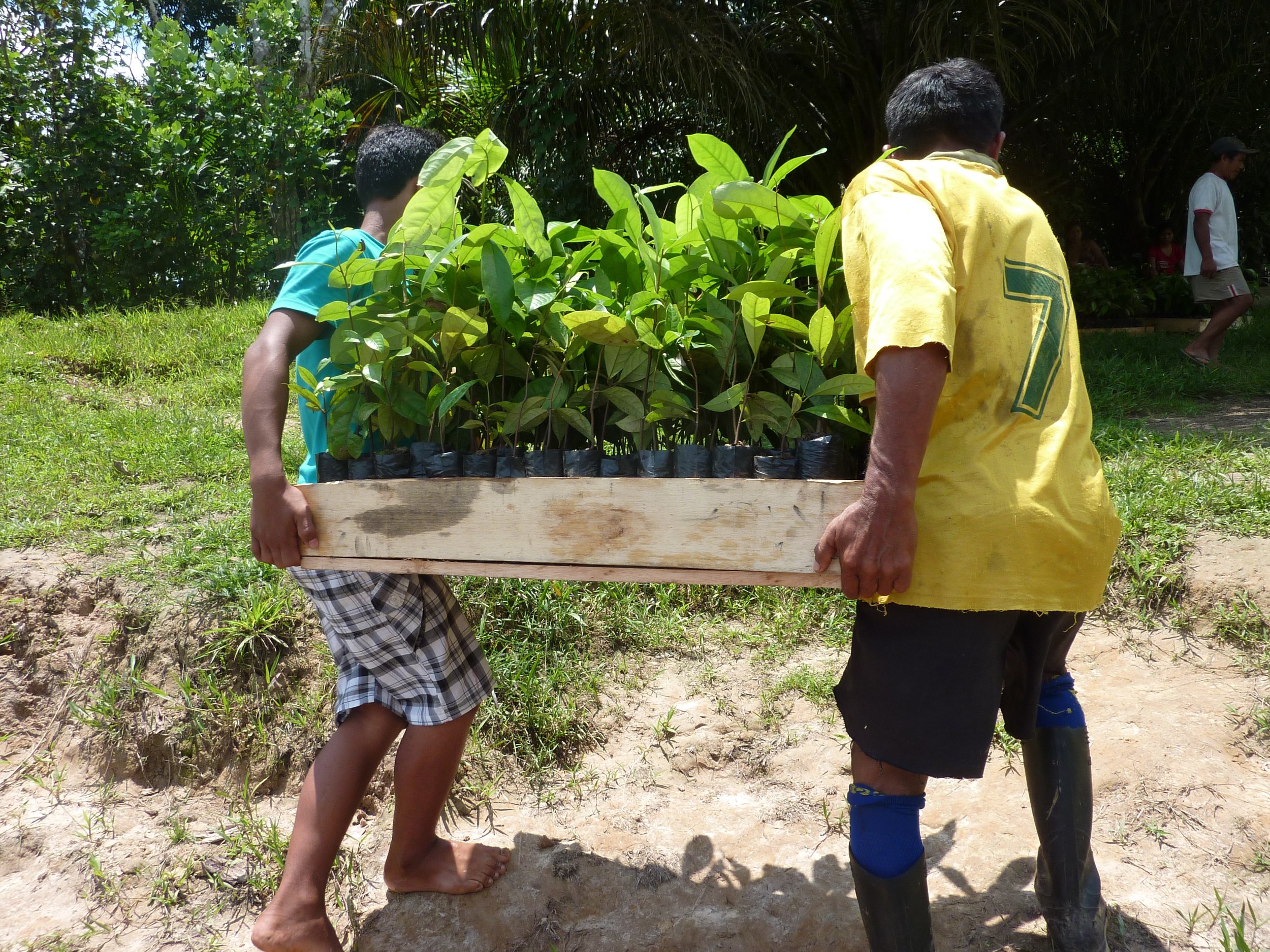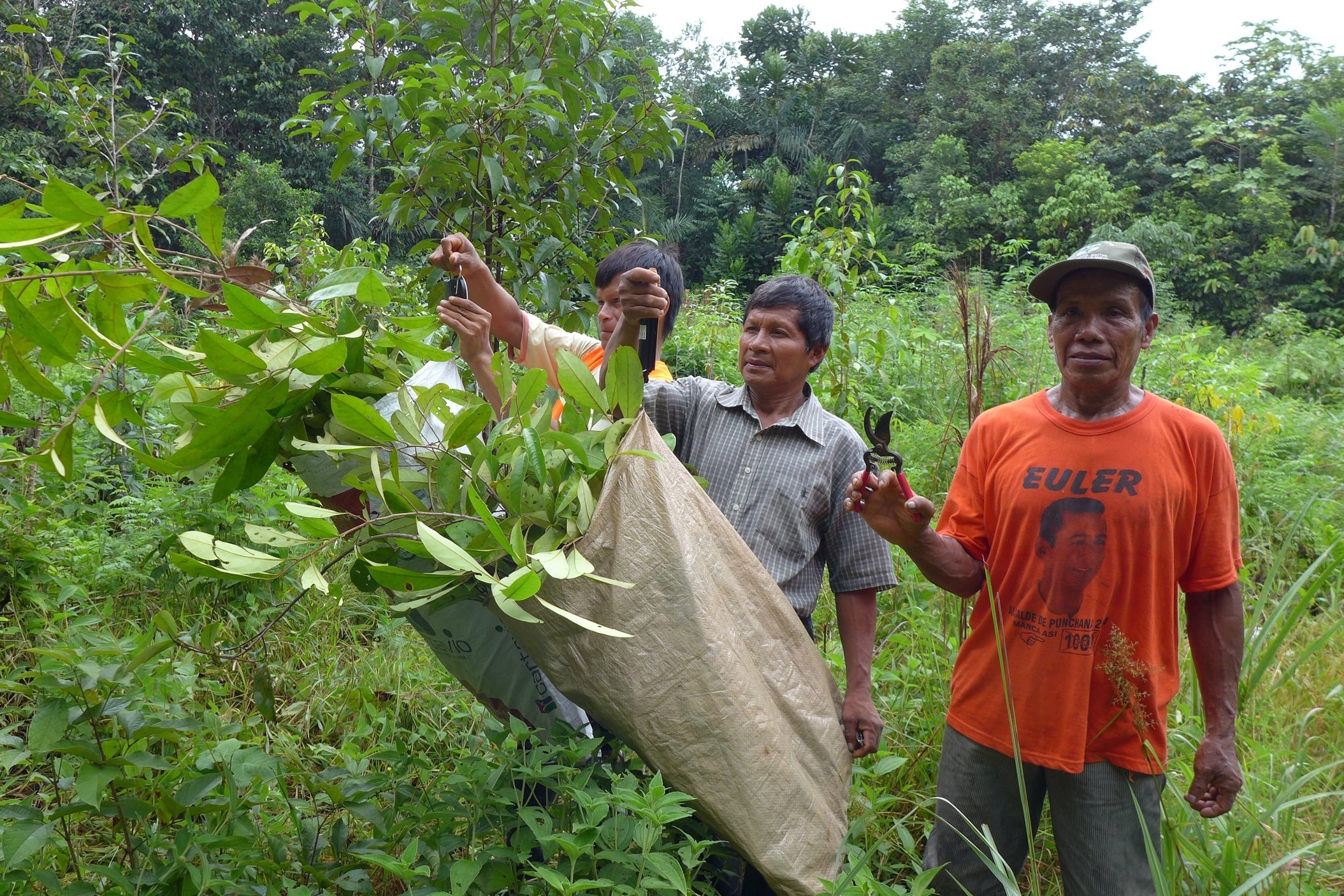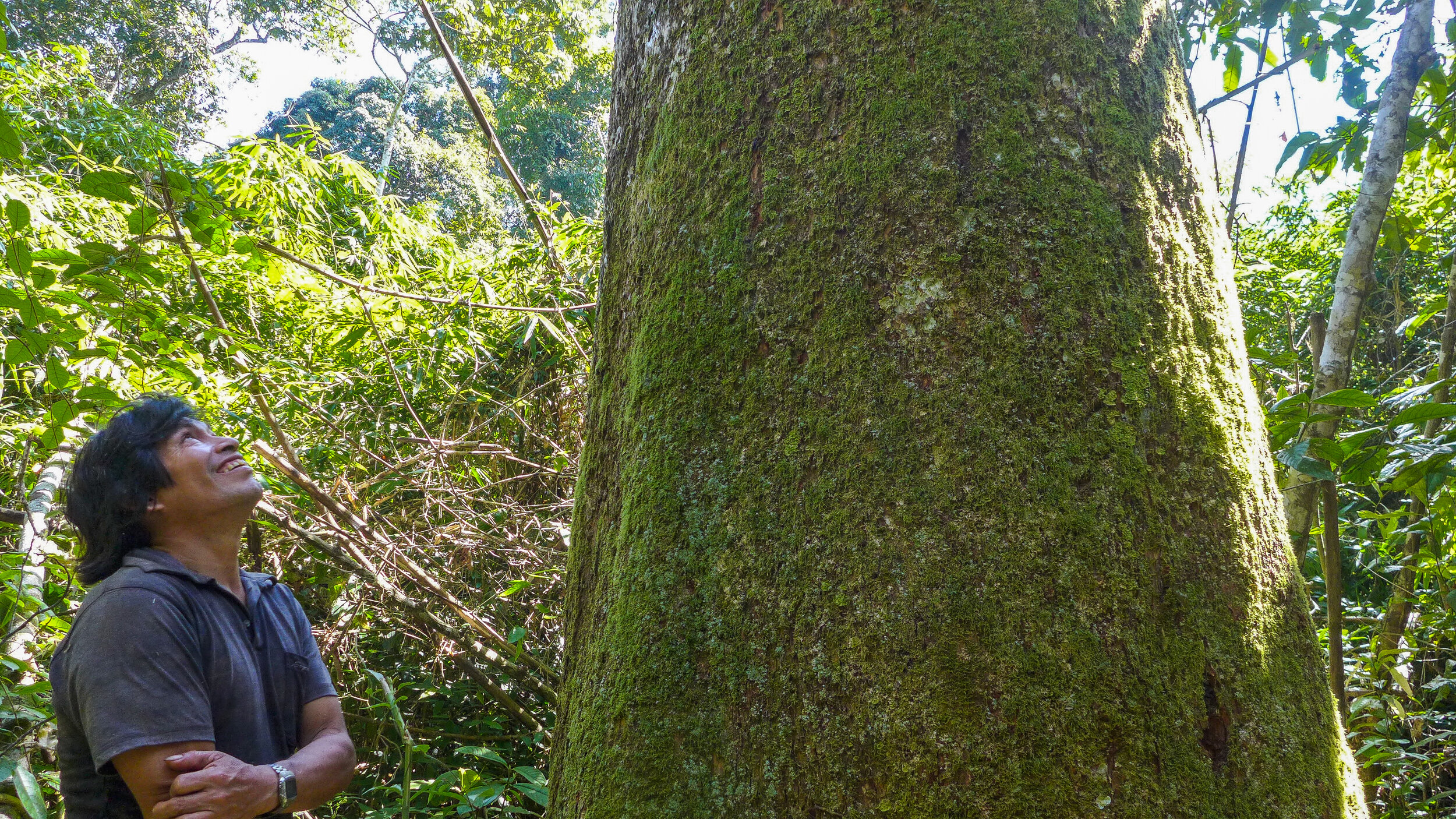
Together with Amazonian farmers and native communities, Camino Verde builds regenerative supply chains sourced from reforested trees of endangered species.

Motivation
Historically overexploited for its fine tonewood for guitar making and its richly aromatic essential oil for perfumery, Brazilian rosewood (Aniba rosaeodora) is an Amazonian canopy tree classified as Endangered by the IUCN Red List and included in CITES Appendix II. It is probably the only species in the world that can claim to have been pushed to the brink of extinction by Chanel No. 5.
The exploitation of rosewood was a latter day extractive economy in the model of the rubber boom era a generation earlier – and similarly relied on slave labor for its profitability. The living memory of several indigenous groups of the Amazon includes stories of the heavy human toll of rosewood extraction.
Though exploitation of the species historically relied on the destructive harvest of entire trees, roots and all, rosewood oil of excellent quality can be obtained via the harmless harvest of lateral branches, supporting tree growth rather than obliterating whole trees. The same market forces that drove the species toward extinction can now incentivize the reforestation of the species.
Today Camino Verde plants rosewood in diverse, polyculture agroforestry systems with over 100 Amazonian families, including some of the same indigenous groups historically impacted by rosewood’s legacy.
Purpose
The Rosewood Farmer Livelihood Program is meant to:
Generate sustainable livelihoods for Amazonian smallholders and native communities, based on the harvest and management of rosewood and other NTFPs
Create equitable, long-term partnerships that fortify the resilience of Amazonian communities and producer associations
Safeguard the sustainability and full genetic diversity of endangered rosewood for the benefit of future generations
Demonstrate the power of essential oil as a regenerative, value-added NTFP cash crop, a replicable model for the development of other Amazonian essential oils
The Rosewood Livelihood Program consists of:
Rosewood Planting, Management, and Harvest: with 106 families, 6 communities, in 2 regions of the Peruvian Amazon to date
Monthly purchase of rosewood biomass (branches) from families with parcels of 5 years of age or more
Agroforestry Outreach and Training: workshops and farmer field schools to build capacity in organic management of rosewood and polyculture planting systems
Forest Conservation Areas: rosewood farmer families voluntarily designate forest parcels of the same size as the rosewood agroforestry areas for permanent conservation
Relationship Building: signing of formal agreements with participating families, communities and federations; CV institutional participation in community events and conferences
This program is implemented at the following centers:
Take me to:



